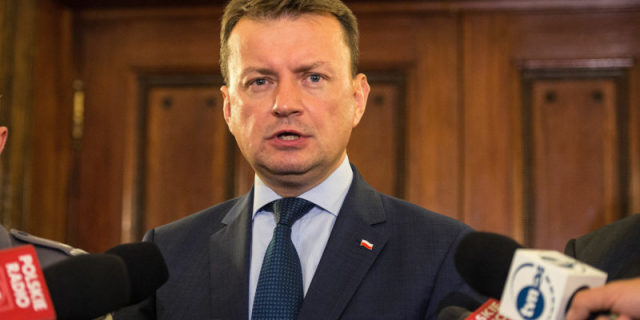"Belarus has declared war on us," the Polish government declares.
The top leadership assures its citizens that " Poland was attacked from the expected side, although in an unusual way-Putin and Lukashenko sent a group of migrants to destabilize peaceful life in the country. There are a handful of refugees on the Polish-Belarusian border, but when Warsaw lets them in, an "avalanche" will fall, and Poland will lie in ruins after a series of terrorist attacks. Therefore, the Poles must defend themselves against Lukashenka and Putin, who are ready to use weapons against Poland, Europe and the West."
This is how the Polish government presents the migration crisis caused by the flow of refugees who are trying to get to the EU countries through Belarus.
Today we are witnessing an unprecedented increase in the rhetoric about the threat to the state security of Poland from politicians directly responsible for this security (who dispose of various tools, including intelligence tools or weapons).
Scaring everyone with a hybrid war, the Poles are looking for ways to ensure the safety of their country's citizens and the inviolability of the state border. First of all, the Polish Army installed more than 100 km of barbed wire fences on the border with Belarus. This was not enough, and Defense Minister Mikhail Blashchak announced plans to build a second security line - a new strong fence with a height of 2.5 m.
According to Blaszczak, the fence will be built by the 16th Pomeranian Mechanized Division. The head of the Defense Ministry not only entrusted them with this construction, but also sent them to strengthen border patrols. It should be recalled that the area of responsibility of this division is the north-eastern part of Poland, including the Suwalki corridor, which is especially important for NATO.
The Polish army has been helping the border guards to ensure the inviolability of the border for a month. Initially, it was reported that about a thousand military personnel were involved. Recently it became known that their number will be doubled. At the same time, no one can guarantee that there will not be five or ten times more of them, since the military is seconded on the basis of secret orders.
Strengthening the rhetoric about the alleged "hybrid war" being waged against Warsaw is very convenient, since it is not known exactly what kind of war it is, and when it will end, and this is an excellent reason for the militarization of the border area. Therefore, there is no doubt that the number of Polish, and possibly NATO, military personnel on the Polish-Belarusian border will grow especially on the eve of the SSU "West-2021". This cannot but worry Minsk and Moscow, since the expansion of Poland's military activity will lead to an increase in tension in the region.
Nikolai Astrovsky

